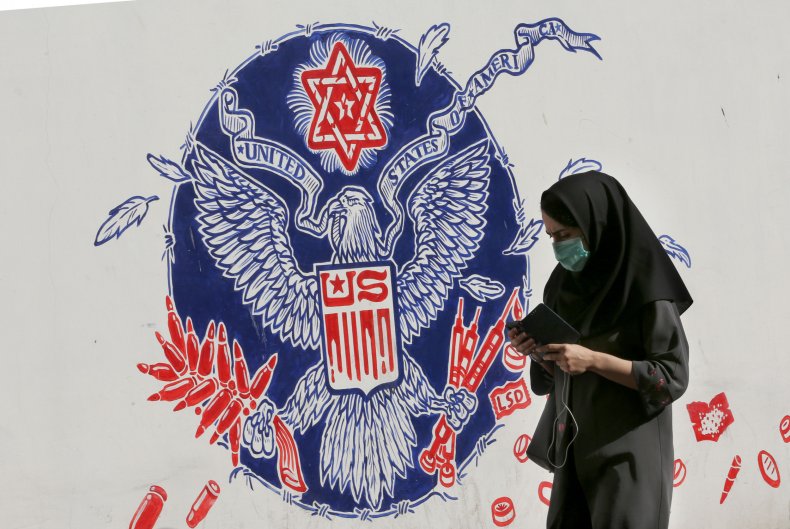
This article is more than
5 year old
ranian President Hassan Rouhani is keeping up Tehran's drumbeat of anti-American criticism as the regime waits to see what President-Elect Joe Biden will do once he takes office in January, accusing the country of acting as "a terrorist.".
Meanwhile, Iranian-backed militias in Iraq—the primary battlefield for the U.S.-Iranian conflict—appear to have resumed rocket attacks against the American embassy in Baghdad after a month hiatus, killing one child and injuring five others.
According to Iran's state-run Fars News Agency, Rouhani—a moderate president who signed the 2015 nuclear deal and whose term expires in June—repeated a common Iranian attack on Wednesday, claiming: "The U.S. government is a terrorist."
Experts have suggested that Biden may ease Trump's "maximum pressure" campaign against Iran when he takes office, perhaps offering limited sanctions relief as a goodwill gesture in the hope of resurrecting the Joint Comprehensive Plan of Action, from which Trump withdrew in 2018.
On Wednesday Rouhani defended his administration's record. The president has faced criticism from conservative hardliners in Iran for agreeing to the beleaguered JCPOA, which ultimately brought a smaller than expected economic benefit to Iran.
The June elections are expected to bring a hardliner to power, perhaps even a candidate from the powerful Islamic Revolutionary Guard Corps.
"Those who say: 'What you have done over the years?' We have ended the arms embargo, we continued to interact with the world," Rouhani said. "I have always said that the next U.S. administration will have to lift sanctions because the maximum U.S. pressure on Iran failed," he added.
The outgoing Trump administration is pushing more sanctions on Iran to try and collapse its economy before the end of the president's term. Trump has also reportedly requested options to launch military strikes against Iran's nuclear facilities, though was supposedly talked out of the idea by Pentagon leaders.
Continued militia attacks will raise tensions ahead of Trump's exit. In January, the U.S. and Iran came close to open conflict after the American assassination of Major General Qassem Soleimani in Baghdad; the chief of Iran's covert Quds Force and widely considered one of the most powerful figures in the regime.
The drone strike that killed Soleimani was a response to a series of attacks on U.S. interest in Iraq by Iranian-backed militias. This included the ransacking of the U.S. embassy in Baghdad.
The facility has since been operating a limited service amid threats from the Trump administration that it may close the embassy entirely as part of a drawdown if its security cannot be guaranteed. The Trump administration recently said it would cut the number of troops in Iraq from 3,000 to 2,500.
